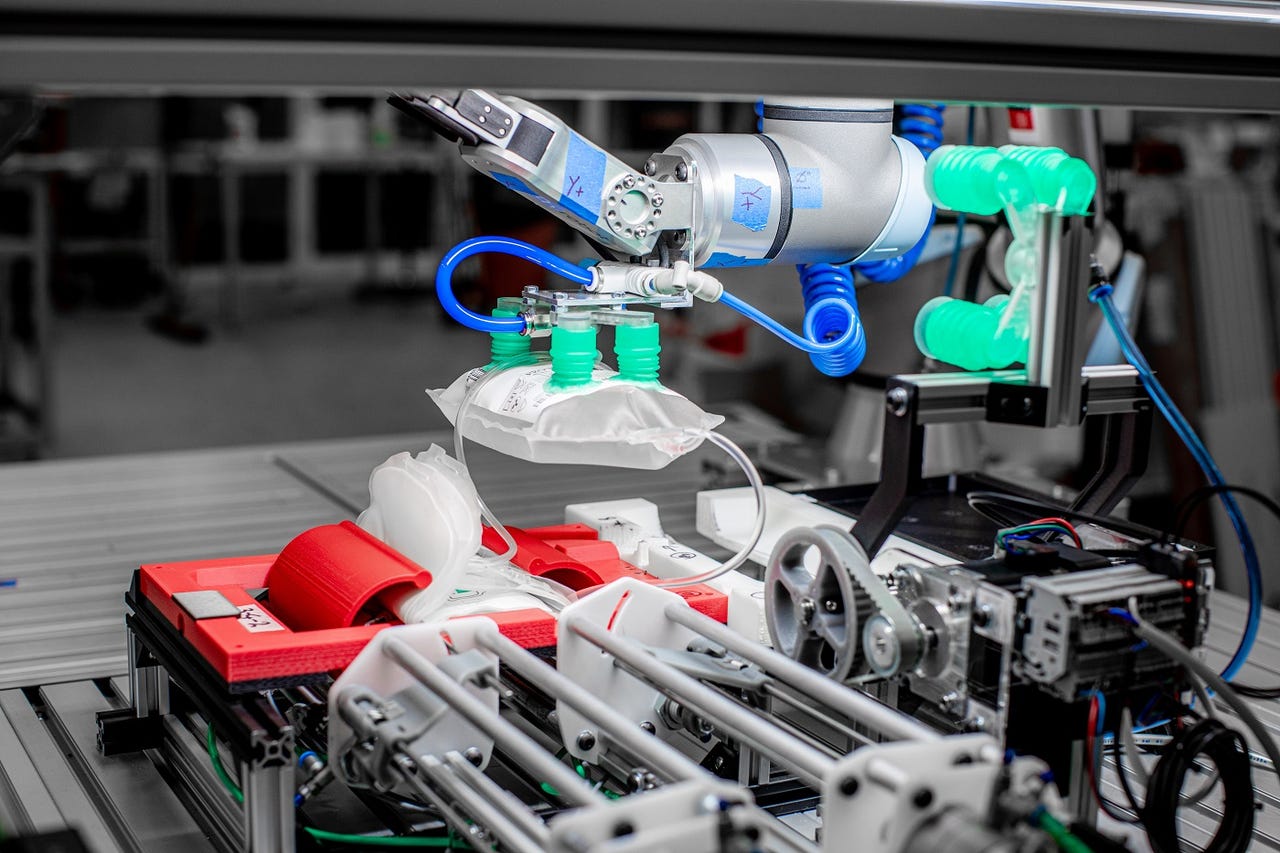Swinburne University researchers develop blood donation processing robot


Researchers from Swinburne University of Technology have developed a robotic prototype designed to help staff automate the processing of blood donation packs.
Currently, processing blood donation is a largely manual task, according to Swinburne.
The university explained the process involves separating whole blood donations into its cellular components via centrifugation, a mechanical method that involves spinning each blood pack in a solution in a centrifuge rotor at high speed. To do this, the blood pack needs to be folded in a particular way to ensure there is no bacterial contamination, which can still carry risk due to human error.
"Damaged or torn packs not only lead to the loss of a precious donation, but also disrupt production and expose staff to potentially hazardous biological materials. Even subtle non-conformities can occur and build over time, leading to quality deviations," the university said.
"On the other hand, such repetitive motions -- sometimes hundreds a day -- can cause ergonomic strain and injury for staff."
The team of researchers, led by Dr Shanti Krishnan, Swinburne Factory of the Future deputy director, has developed a proof-of-concept to help automate the folding and centrifuge loading process of whole blood collection packs.
The robot uses a suction motion to move the blood packs before automatically folding them, with the help of four cameras that are used to monitor the work area, check for complete labels and correct bag alignment, and ensure the process is successfully completed. The system has also been built to alert an operator if any errors are found.
"I was excited at the prospect of finding an automated innovative solution to a repetitive manual process in the medical industry, especially one that uses collaborative robots and machine vision systems," Krishnan said.
"We have developed automated folding of complex soft, deformable packs and, thereby, added significant value to a vital manufacturing process for our industry partner who are planning to advance it to the next stage of commercialisation."
As next steps, the researchers said they will investigate how they could improve the speed of the robot, which currently operates slower than if a person were to process a blood donation.
Krishnan added that the robot also has the potential to be used in other industries, beyond healthcare.
"It is a fantastic outcome that could have a significant impact. As all processing centres have almost identical laboratory setups, the results from this project could be translated nationally," he said.
"The findings could also be translated to other, similar processes involving soft deformable objects -- with an impact on food, health, manufacturing and other industries."